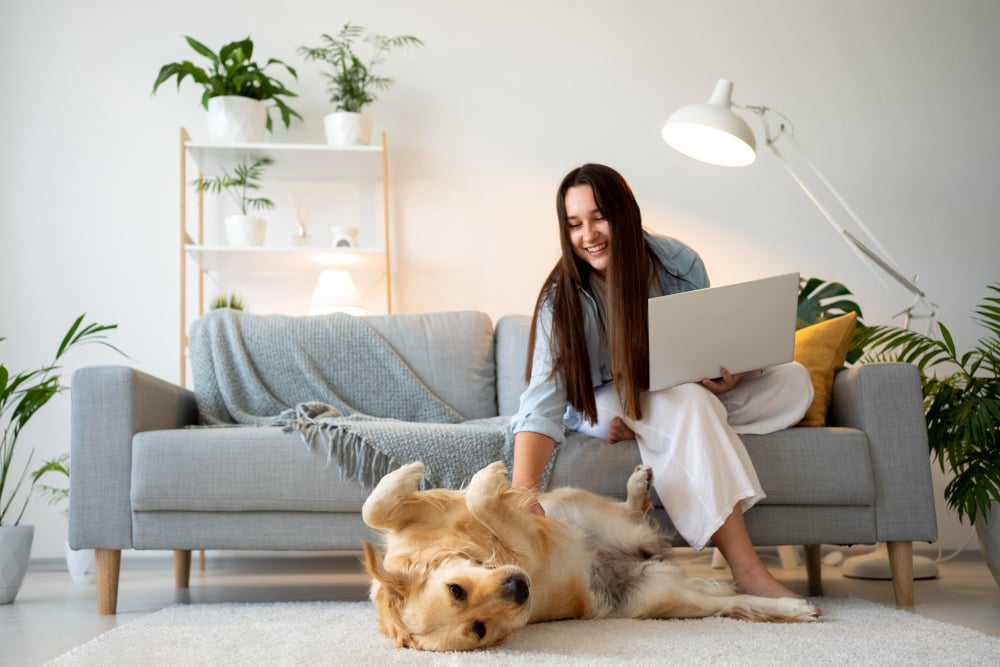Furry friends bring joy and companionship into our lives, but they can also bring along some itchy, unwelcome guests: fleas.

It’s essential for dog owners to understand how to treat and prevent these pesky parasites effectively. In this quick guide, you can learn a multipronged approach to banishing fleas from your dog and your environment, ensuring that your pooch stays healthy and happy.
Understanding Fleas and Their Life Cycle
Before diving into treatments and preventives, it’s crucial to understand flea biology. Fleas thrive in warm, humid environments and can jump to astonishing heights to latch onto a host. Their life cycle—egg, larva, pupa, and adult—can make them quite resilient. Breaking the cycle at multiple points is key to effective control.
Natural Remedies and Preventives
For those leaning towards more natural solutions, there are several home remedies and preventive measures you might consider. Alongside the use of products like essential oils and diatomaceous earth, you can explore a variety of home remedies for fleas on dogs. These may include everyday items like baking soda, salt, and lemon spray which can offer a more holistic approach to flea control.
Preventive Medications
In addition to topical treatments, oral medications can act as another line of defense against fleas. These medications, which are often administered monthly, work to interrupt the life cycle of fleas before they can mature and reproduce. Some products also offer protection against other parasites such as ticks, heartworms, and intestinal worms. Remember that these medications require a prescription from your vet and should be used as part of an integrated pest management plan.
Topical Treatments and Spot-ons
One frontline defense against adult fleas is topical treatments. Applied directly to your dog’s skin, these treatments kill fleas on contact and can provide a barrier against further infestation. It’s important to apply these products as directed and consider your dog’s size and health when choosing a treatment.
Consulting with Your Vet
For the best advice and treatment plans, consulting with a veterinarian is invaluable. Vets can offer guidance on the safe and effective use of flea treatments and help establish a flea prevention regimen tailored to your dog’s unique needs. Always remember to consult your vet before trying any medication or home treatments.
Environmental Warfare
Your fight against fleas doesn’t end with your dog—your home and yard are battlefields too. Regular cleaning regimes, such as vacuuming and washing dog bedding, can help remove eggs and larvae. For outdoor areas, maintaining your lawn and garden can discourage flea infestations from developing.
Combating Fleas with Good Grooming
Good grooming practices are vital. Brushing your dog regularly and bathing with gentle, natural shampoos can help prevent flea populations from flourishing. While grooming, check for fleas and flea dirt, which are telltale signs of an active infestation.
Impact on Human Health
While fleas are a nuisance for dogs, they can also pose health risks to humans. Flea bites may lead to irritation or allergic reactions, and in some cases, fleas can transmit bacterial diseases or parasites. Keeping your dog flea-free is not only important for their comfort and health but for your family’s well-being as well. By controlling flea infestations, you minimize these health risks and ensure a healthier environment for everyone at home.
Dietary Supplements and Nutrition
Nutrition can also play a role in flea prevention. A well-balanced diet that promotes a healthy coat and skin can make your dog less attractive to fleas. Certain dietary supplements like omega-3 fatty acids may improve skin health and thus help deter fleas. Always consult with your veterinarian before adding any new supplements to your dog’s diet, to ensure they’re both safe and beneficial for your pet.
Conclusion
Fleas can be a nuisance for any pet owner, and winning the war against fleas requires a combination of treatments, home and yard care, and regular grooming. By staying diligent and utilizing various methods of control and prevention, you can keep your dog flea-free. Remember, a flea-free dog is a happy dog, and a happy dog makes for a joy-filled home.
